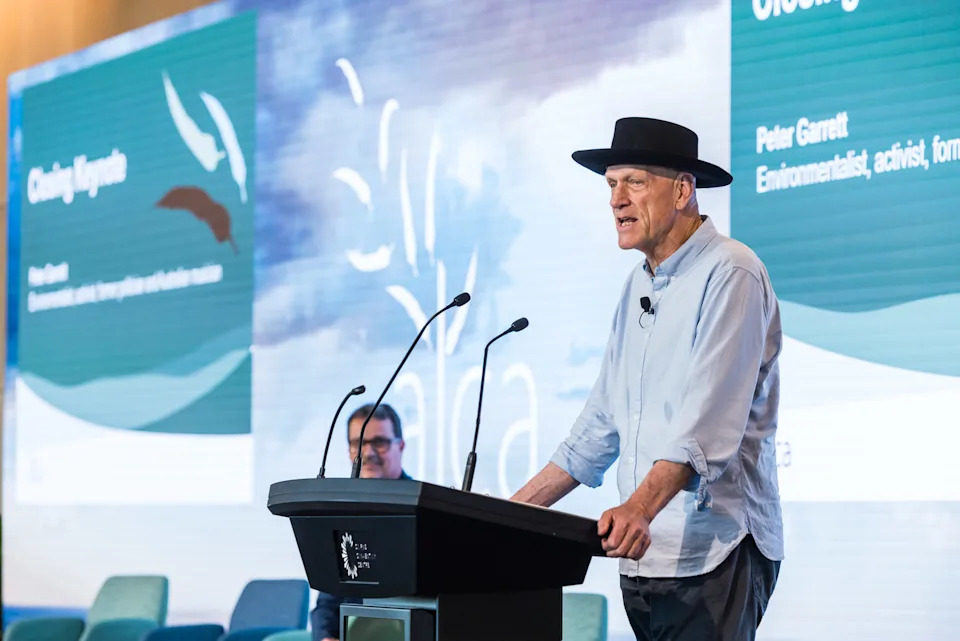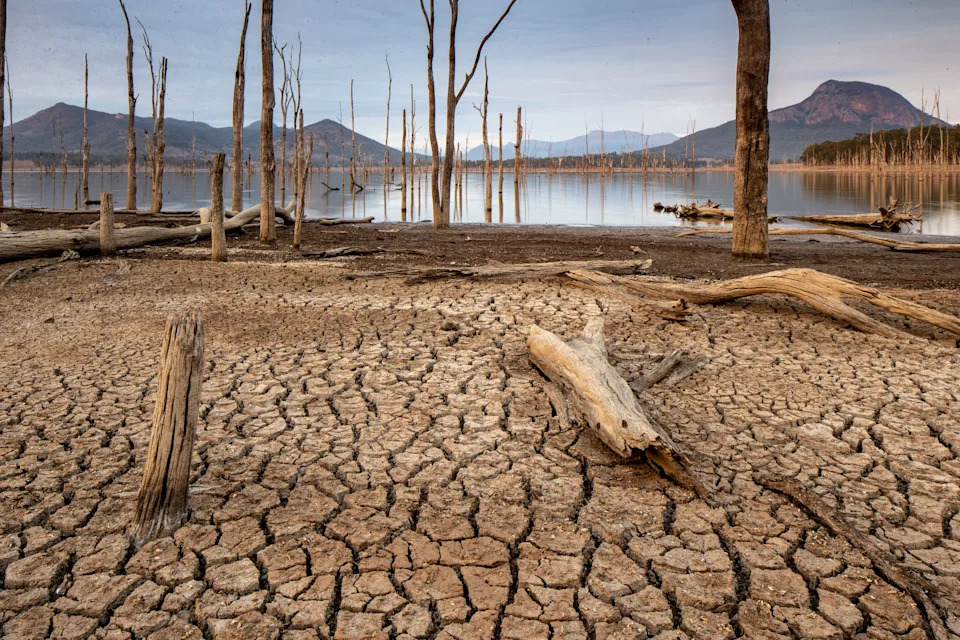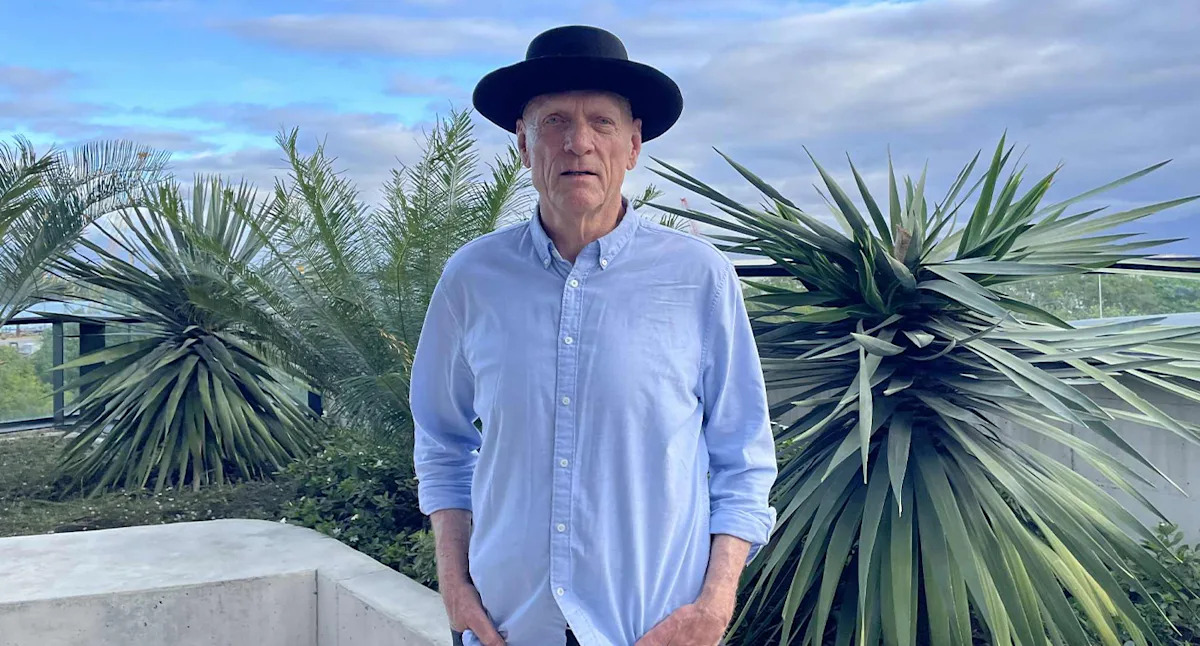Peter Garrett’s biggest environmental dread is that the power of the fossil fuel industry will “tip us into an abyss which will be very difficult to get out of quickly”.
In an interview with Yahoo News, the retired Midnight Oil frontman and former federal environment minister warned that climate change could leave the world in a “mess” for a couple of hundred years. But despite his concerns, he doesn’t believe there is any place for fatalism in any part of life, whether it’s global warming or whether your football team is going to win.
What Garrett is interested in is hope. And he’s really hoping the current government will reconsider its decision to approve energy giant Woodside’s expansion of the North-West Shelf, which he argues was a “really poor decision”. At a time when the world is facing a growing threat from climate change, this project will see methane gas extracted until 2070, making it one of the nation’s biggest polluting projects.
When it comes to tackling the issue of global emissions, he believes Australia has the potential to be a world leader again, as it did by supporting the formation of the United Nations in 1945 after World War II, and ratifying the Montreal Protocol in 1987 to phase out harmful emissions that were creating a hole in the ozone layer.
“We’re not a small nation — in economic strength, we’re just short of Russia. Particularly in our region, we’re a middle-sized to large power, and certainly we’ve got the intellectual, financial, and political resources to be a force for good,” he said.
Garrett thanks ‘genuine Aussie patriots’ for standing in front of bulldozers
Garrett was in Cairns this week to speak at the Australian Land Conservation Alliance (ALCA) conference in Cairns, which brought together more than 400 land managers and owners, government policymakers, researchers, business and industry experts, and Indigenous leaders to debate taking local action to find global solutions to protecting and restoring nature. During his half-hour keynote speech, he reflected on the campaign to protect the Daintree Rainforest as a national park.
“We are grateful to these genuine Aussie patriots,” he said of those who lay in front of the bulldozers, facing arrest to protect the wilderness from housing developers.
Today, a “key issue” in tackling biodiversity loss and climate change is the declining level of public enthusiasm to better look after the environment. And while most Australians no longer live in the bush, and are only exposed to nature during holidays, barbecues, and visits to the beach, he said their support is crucial.
“All bets are off until the climate is stabilised and fossil fuels quit at speed. So we know we are in a bona fide climate emergency, and we also know it’s high time we acted accordingly,” he said.
His concerns about the need for the world to do more to tackle climate change are shared by scientists and conservationists, including Professor Tim Flannery, Dr David Suzuki, and the late Dr Jane Goodall.

Peter Garrett addressed hundreds of conservationists at the ALCA conference in Cairns. Source: ALCA
Garrett’s secret to remaining hopeful
Sitting in a back room at the Cairns Convention Centre after his speech, 72-year-old Garrett admitted to not having the energy he once did. But he claims to have always had “very low threshold goals and aims”, and he’s never been someone to set a forward agenda.
“There’s a lot of unhappiness in projection, psychologically, and there’s a lot of unhappiness looking over your shoulder and saying what if, if only, or I could have. But they’re not in my language,” he said.
Thinking about why he remains hopeful, he takes a moment to think back in time, something he doesn’t often do unless he’s sitting alone in the desert or the bush. What comes to mind is a song he collaborated on, Minutes to Midnight, which was released in 1987 when many feared nuclear war between the United States and the Soviet Union.
“I hate quoting myself, but ‘Hope is what you say and do’… I don’t elevate hope as being something that you need to be able to exist or get by. Some people probably do need that, but maybe my genetic disposition is that it’s just a part of how I think and feel about things,” he said.
“Of course, there are times when you look out and think, it looks pretty ordinary, and there’s some tough hills, but that’s always been the case with humans.”
Related: Jane Goodall labels destruction of Australia’s Lee Point as ‘disgusting’

Peter Garrett said Midnight Oil were never a “propagandist band” they just performed rock songs about issues they were passionate about. Source: Getty
Midnight Oil fans change attitudes over the years
When it comes to advocating for the environment, Garrett does this by speaking to strangers in the same way he would if he were having a yarn with his mates.
Back when he’d play to crowds of thousands as the lead singer of Midnight Oil, singing social justice classics like Beds are Burning or Blue Sky Mine, there was a misconception that the band was trying to change the hearts and minds of the audience. He’s adamant they were never a “propagandist band”.
“We were there to say what we felt, and what our feelings were about something, and it was up to people to decide whether they wanted to keep coming back and listen to more,” he said.
“What’s fascinating is to see the evolution over time… where people, when they were younger, may have rejected half of what you were saying and singing about, and then at a later stage in their life when they’d settled down a bit or had kids, they come back and say, actually I sorta get what that song’s about.
As a musician, Garrett wasn’t worried about whether people agreed or disagreed with his point of view. And when he was tapped on the shoulder to become environment minister in 2007, his focus was on making decisions without bias that were in line with the law. And despite facing relentless criticism from right-wing shock-jocks, he enjoyed his time in politics.
“I’ve got double thick skin… I would have stayed longer if I could,” he quipped.
Garrett’s hope for the Albanese Government
Garrett is hoping the Albanese Government will rethink its pathways to reaching its important emissions reduction targets for 2035 and 2050.
Because it has continued to approve new fossil fuel projects during its 3.5 years in office, he thinks it’s “highly unlikely” it will reach them. He warns that technical financial gimmicks like offsets and improving productivity with the help of AI are not the answer.
“The only way we’ll reach our targets is by getting out of fossil fuels,” he said.
“You’ve got to transition out of them, of course. You’ve got to take into account employment and the social impact. But the alarm bells are so clear, the warnings are as loud as they’ve ever been from scientists, and they’re getting louder.
“Why should future generations of Australians suffer because the current generation of politicians aren’t willing to make some strong decisions in favour of the environment?”

Woodside’s North-West Shelf was approved by the current environment minister Murray Watt. Source: Getty
Garrett’s favourite place on Earth
Garrett never even wanted to succeed in the music charts, and despite his philanthropy, he doesn’t want to see his name on a building. At a time when oligarchs and billionaires rise in power, and some dream of living forever, Garrett scoffs at the idea.
“I think that’s Joker’s card, that one. I don’t get the idea of immortality, it’s vanity, it’s shallow, it’s deep narcissism. You can call it what you wish,” he said.
“When it’s your time, it’s your time, you’ve run your course. Whenever that happens, it happens.”
There’s nothing he now wants to personally “achieve”. Because he doesn’t see his life in terms of individual successes.
“Others make those judgements. I’m not drinking my own Kool-Aid. I’m tough on myself. Or I try to be,” he said.
Garrett has spent decades advocating for the protection of the environment. The hills that surround his home on the NSW South Coast are one of the most creatively inspiring places for him today. But when it comes to his absolute favourite place to spend time, the well-travelled musician’s answer eludes to a concept that’s more about people and a feeling.
“It’s with family, with my bestie, wherever that may be,” he said.
“But outside. There’s definitely a tree. Maybe a little bit of an aspect. And if it’s winter, there might be a small fire around. There could be a billy boiling. I’d be very happy.”

Future generations face more severe and frequent extreme weather. Source: Getty
Love Australia’s weird and wonderful environment? 🐊🦘😳 Get our new newsletter showcasing the week’s best stories.


